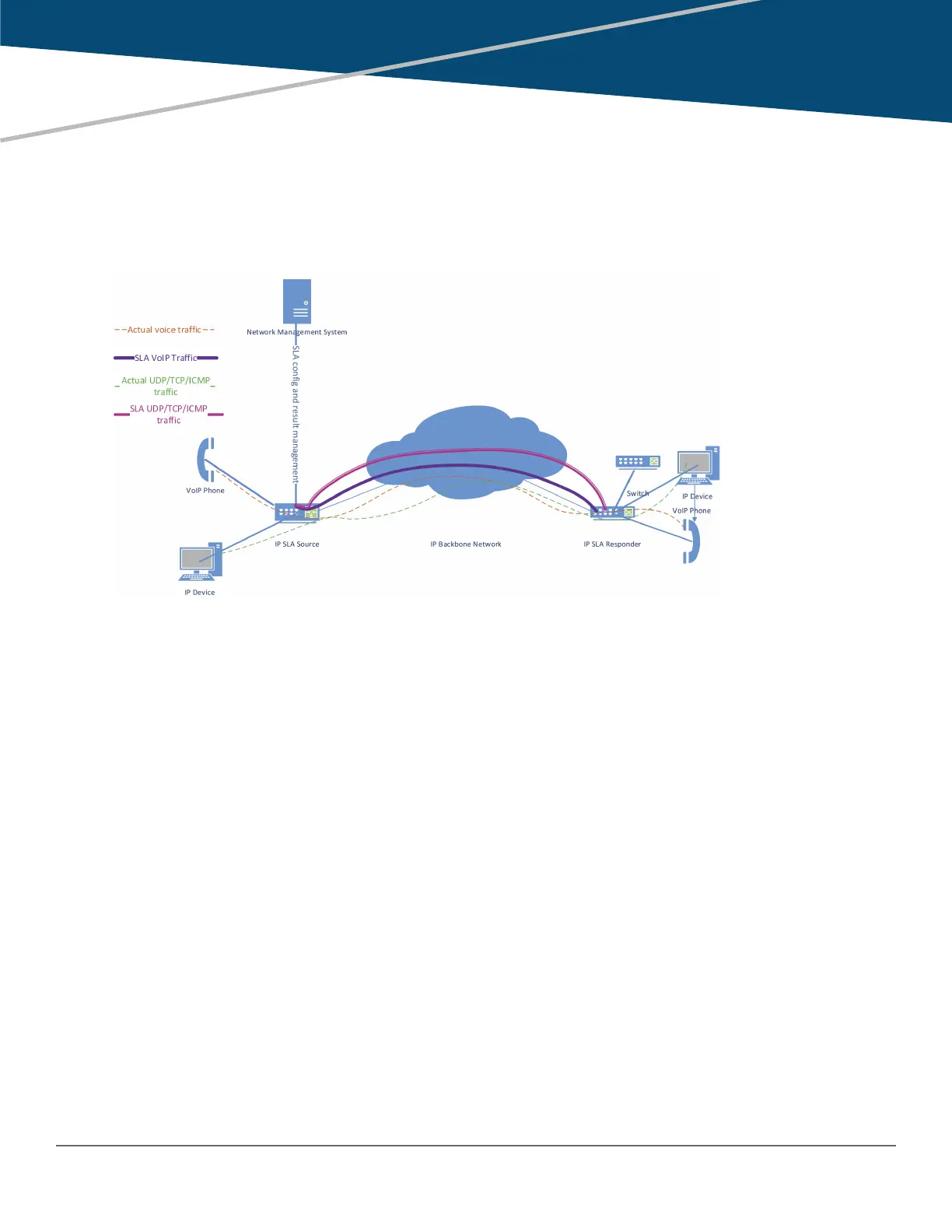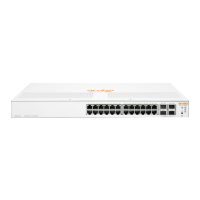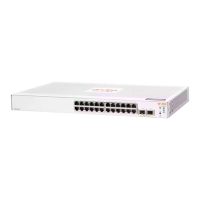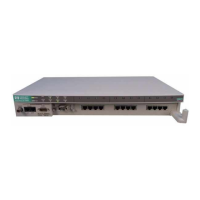Overview
IP Service Level Agreement (IP SLA) is a feature that helps administrators collect information about network
performance in real time. With increasing pressure on maintaining agreed-upon Service Level Agreements on
Enterprises and ISPs alike, IP SLA serves as a useful tool.
Any IP SLA test involves a source node and a destination node. For all discussions in this document, the source
is always an ArubaOS-switch with IP SLA support. As shown in the diagram above, a destination can, in most
cases, be any IP-enabled device. For some SLA types that expect a nonstandard response to a test packet, an
“SLA responder” must be configured. An “SLA responder” is nothing but an ArubaOS-switch with IP SLA
configurations on it that enable it to respond to the test packet.
The IP SLA feature provides:
• Application-aware monitoring that simulates actual protocol packets.
• Predictable measures that aid in ease of deployment and help with assessment of existing network
performance.
• Accurate measures of delay and packet loss for time-sensitive applications.
• End-to-end measurements to represent actual user experience.
We support the following SLA types:
• UDP Echo, including connectivity testing of transport layer (UDP) services, Round-Trip-Time (RTT)
measurement, one-way delay, and packet loss details.
• ICMP Echo, including connectivity testing, RTT measurement, and packet loss details.
• TCP Connect, including connectivity testing of transport layer (TCP) services, and handshake time
measurement.
• DHCP, which measures the round-trip time taken to discover a DHCP Server and obtain a leased IP address
from it.
Chapter 17
IP Service Level Agreement
586 Aruba 2930F / 2930M Management and Configuration Guide
for ArubaOS-Switch 16.08

